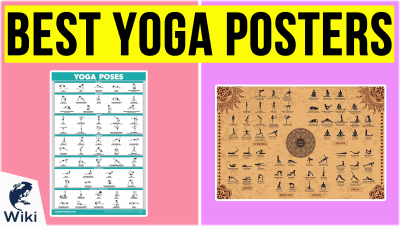6 American Organizations Tackling Criminal Justice Issues
With more incarcerated individuals than any nation on Earth, the American criminal justice system is in need of serious changes. These organizations work to help current and former prisoners while advocating for reforms that will reduce recidivism, end the cycle of incarceration, and create a more equitable system for everyone. This video was made with Ezvid Wikimaker.
6 Groups Addressing Criminal Justice in the United States
| Organization | Headquarters | Focus |
|---|---|---|
| The Fortune Society | Long Island City, NY | Supports alternatives to incarceration and provides services to help prisoners reenter society upon release |
| Center on Juvenile and Criminal Justice | San Francisco, CA | Youth services, case management, and policy analysis in an effort to promote a balanced and humane criminal justice system |
| Mid-Atlantic Innocence Project | Washington, D.C. | Reexamines cases and provides legal help to prevent and remedy the conviction of innocent people in Maryland, Virginia, and Washington, D.C. |
| Hudson Link for Higher Education in Prison | Ossining, NY | Only nonprofit in the United States run by formerly incarcerated individuals that offers college degree-granting programs inside prisons |
| Insight Prison Project | San Quentin, CA | Rooted in the idea of restorative justice, offers the Victim/Offender Education Group curriculum, which allows victims and incarcerated people an opportunity to work together, improving the healing process and reducing recidivism |
| Innocence Project New Orleans | New Orleans, LA | Works to exonerate and free those wrongfully convicted in Louisiana and Mississippi, support them after release, and advocate for legislative reforms |
Hudson Link for Higher Education in Prison Takes Us Inside Sing Sing
Incarceration Rates Worldwide
| Rank | Country | Total population in 2019 | Total number of prisoners | Prisoners per 100,000 people |
|---|---|---|---|---|
| 1 | United States | 329,064,917 | 2,193,798 | 737 |
| 2 | Russia | 145,872,256 | 874,161 | 615 |
| 3 | Ukraine | 43,993,638 | 162,602 | 350 |
| 4 | South Africa | 58,558,270 | 158,501 | 334 |
| 5 | Poland | 37,887,768 | 89,546 | 235 |
| 6 | Mexico | 127,575,529 | 214,450 | 196 |
| 7 | Brazil | 211,049,527 | 371,482 | 193 |
| 8 | Spain | 46,736,776 | 63,991 | 144 |
| 9 | Kenya | 52,573,973 | 47,036 | 130 |
| 10 | The Netherlands | 17,097,130 | 21,013 | 128 |
The Work of Innocence Project New Orleans in Fighting Wrongful Convictions
In Depth
Few American institutions are as complex and controversial as our criminal justice system, which has the highest rate of incarceration in the world. People serving time in jails and prisons encounter a number of unfortunate issues, from lack of access to education to difficulty re-integrating into society upon release. To combat these and other problems, such as wrongful convictions, several groups with an eye to social reform have cropped up. If you are interested in learning about their work, then here are, in no particular order, six American organizations tackling criminal justice issues.
Coming in at #1 is The Fortune Society, based in Long Island City, New York. Inspired by an Off-Broadway play and founded by David Rothenberg, this organization seeks to build stronger communities by promoting alternatives to incarceration and supporting currently and formerly incarcerated individuals, particularly those re-entering their communities. Since its founding in 1967, it has achieved impressive results, and in 2018 alone, it provided services to over 7,200 people.
The Fortune Society has a wide range of services in its arsenal. Alternatives to Incarceration, a program committed to reducing jail and prison populations, helps people break the cycle of criminal activity and has saved taxpayers millions of dollars. Other offerings include in-house social services that assist with employment, housing, mental health and substance use treatment, and nutrition. Furthermore, this nonprofit also engages in advocacy via the David Rothenberg Center for Public Policy, launched in 2007. If you want to get involved with The Fortune Society, consider attending one of its events or signing up as a volunteer or intern.
Furthermore, this nonprofit also engages in advocacy via the David Rothenberg Center for Public Policy, launched in 2007.
In the #2 spot is the Center on Juvenile and Criminal Justice. Established as an independent nonprofit in 1991 by Dr. Jerome G. Miller, CJCJ, based in San Francisco, works to decrease the role of incarceration as a solution to social problems. In support of its mission, it maintains a professional staff of nearly forty and has developed and deployed programs in direct services, technical assistance, and policy analysis.
Some examples of CJCJ's specific services include Community Options for Youth, which offers mental health support, and the No Violence Alliance, which provides re-entry services for people recently released from San Francisco jails. The Center on Juvenile and Criminal Justice also does consulting work with outside organizations such as national, state, and local jurisdictions that want to improve their systems. If you are interested in learning more about CJCJ, you can join its mailing list to receive regular updates on the latest news.
At #3 is the Mid-Atlantic Innocence Project. Established in 2000, M.A.I.P. fights to prevent and remedy the conviction of innocent people in Maryland, Virginia, and Washington, D.C. It frequently examines cases in which new evidence, often from DNA, has come to light. As of 2019, M.A.I.P. has helped thirty-three wrongfully convicted men, who served over 600 years total, achieve justice.
Established in 2000, M.A.I.P. fights to prevent and remedy the conviction of innocent people in Maryland, Virginia, and Washington, D.C. It frequently examines cases in which new evidence, often from DNA, has come to light.
In addition to its work on individual cases, the Mid-Atlantic Innocence Project has contributed to efforts that have led to the passage of fourteen laws protecting people from wrongful convictions. Furthermore, it has collaborated with a number of outside partners, including the Conviction Integrity Unit at the US Attorney's Office and the Department of Forensic Science in Virginia, on projects such as criminal justice reform and evidence reviews. If you are interested in getting involved with M.A.I.P., you can make a donation online or sign up to volunteer.
Coming in at #4 is Hudson Link for Higher Education in Prison. Formed in 1998 and working across New York state, this organization is the only nonprofit in the United States run by formerly incarcerated individuals that offers college degree-granting programs inside prisons. Each year, it saves taxpayers in New York over 21 million dollars, and it boasts an impressively low recidivism rate of under 2%, compared to the national rate of over 67%.
Active in five correctional facilities, Hudson Link teams up with eight college partners to deliver its educational offerings. Its College Preparatory School is a one-year program designed to bring students up to speed in subjects such as math, sociology, and English. The core of Hudson Link's work, the college program, connects incarcerated students with colleges like Columbia and Vassar. It also has an Alumni Office, which assists graduates with resumes, job applications, and computer training. Those who are interested in supporting this nonprofit can become official members or sign up to volunteer.
Active in five correctional facilities, Hudson Link teams up with eight college partners to deliver its educational offerings.
In the #5 spot is Insight Prison Project, founded in 1997. Using the principles of restorative justice, IPP's transformative programs take the needs of incarcerated people, parolees, and crime survivors into account. Starting with only one class in San Quentin State Prison, the organization has grown considerably, and its programs now reach thousands of individuals in places like state prisons, county jails, and re-entry facilities.
At the center of Insight Prison Project is the Victim-Offender Education Group, a program of eighteen months that encourages collaboration and discussion between victims and incarcerated people. With the assistance of trained facilitators, this group helps participants understand and take responsibility for their behavior, and it concludes with a healing dialogue. In addition, IPP provides training opportunities for group facilitators. If you want to learn more about this nonprofit, you can sign up to receive its newsletter or follow its profiles on social media.
Last but not least, at #6 is Innocence Project New Orleans, formally established in 2001. A founding member of the Innocence Network, I.P.N.O. is a non-profit law office that frees innocent people who have been wrongfully sentenced to life in prison. Additionally, it supports clients after their release and during their re-entry into society, as well as engages in advocacy that will result in sensible criminal justice policies and a reduction of wrongful convictions.
Additionally, it supports clients after their release and during their re-entry into society, as well as engages in advocacy that will result in sensible criminal justice policies and a reduction of wrongful convictions.
As of 2019, I.P.N.O. has freed or exonerated thirty-five innocent prisoners in Mississippi and Louisiana who collectively served more than 830 years. Its Living After Life program helps freed clients re-integrate into society, assisting with tasks such as applying for jobs and setting up fundraising pages online. Meanwhile, its advocacy work focuses on areas that contribute to wrongful convictions, including mass incarceration and racial oppression, overburdened institutions, and shoddy evidence. If you are interested in supporting Innocence Project New Orleans, consider making a purchase from its online shop or attending one of its upcoming events.



















